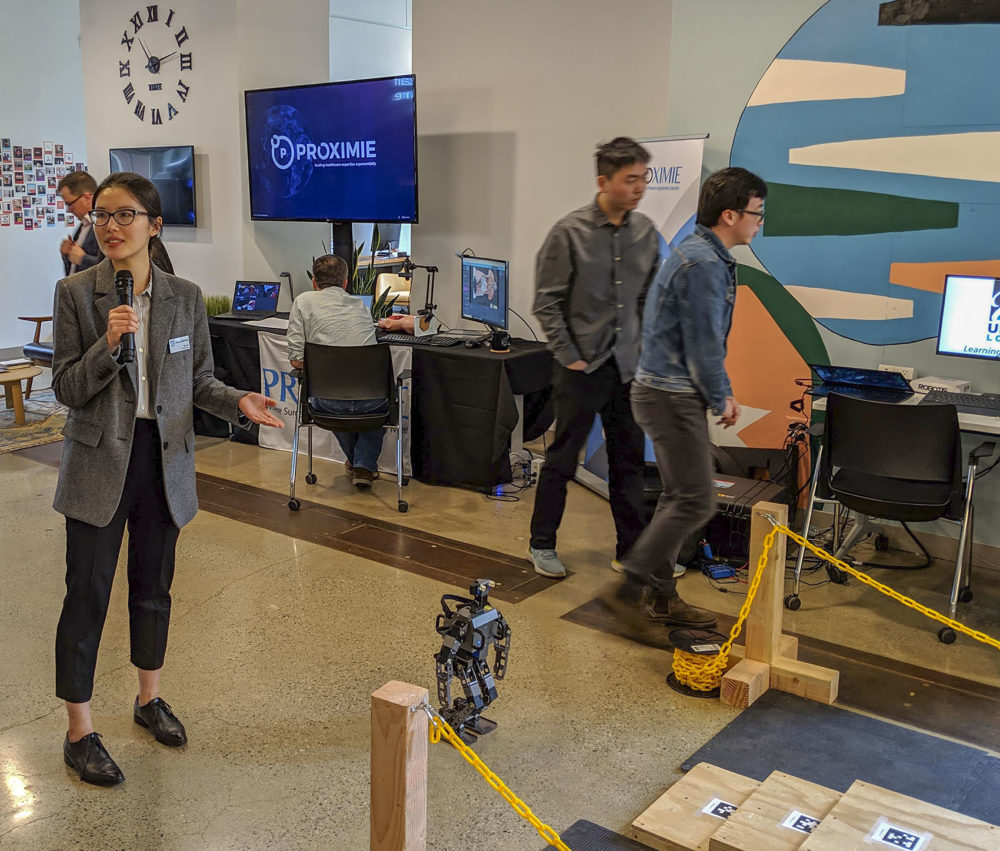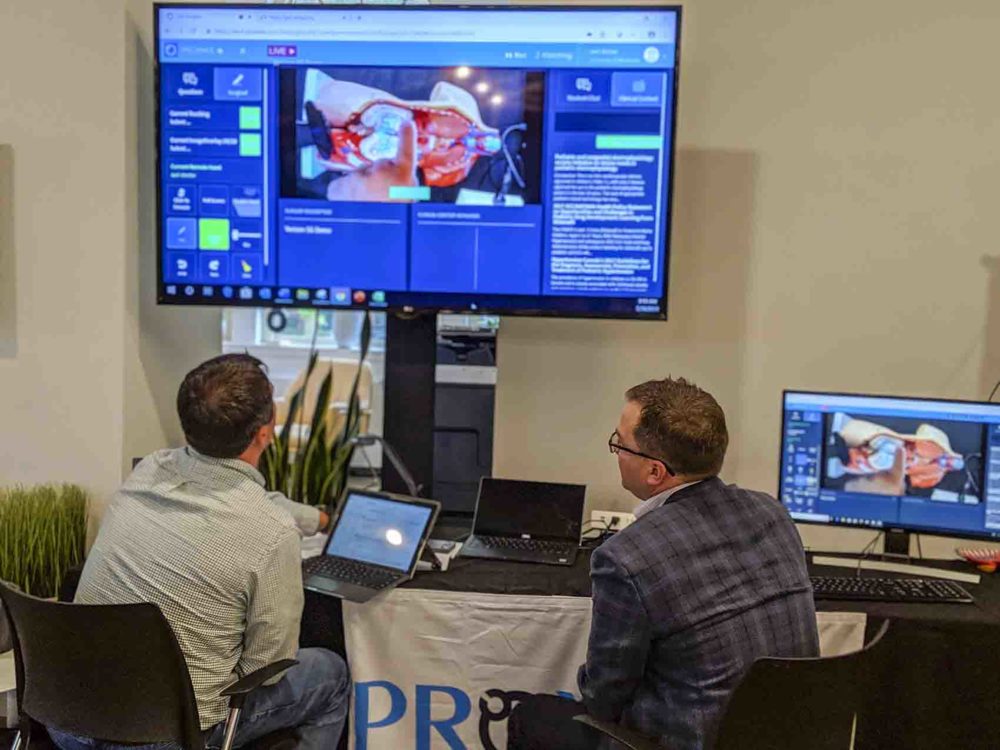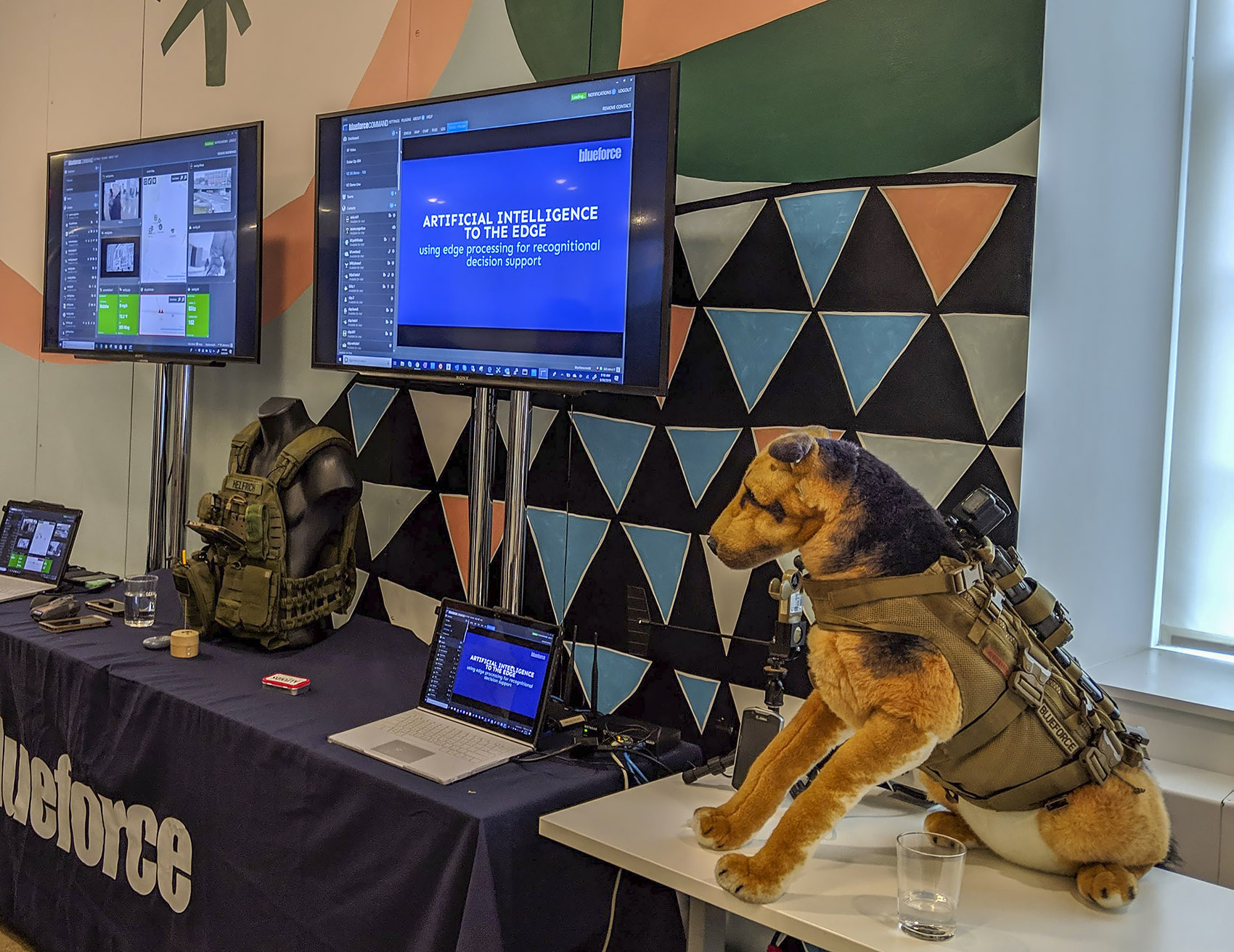Advertisement
Super Speedy And A Little Scary: 5G Is Coming To Boston

Imagine downloading a full-length movie on your smartphone in just a few seconds — without connecting to Wi-Fi. That's the promise of 5G, the fifth generation of mobile technology which is slated to roll out in Boston later this year.
And there's more to 5G than lightning-fast entertainment. A new generation of wireless communication could enable robot firefighters or help defuse bombs in war zones.
Inside a nondescript, brick office near Harvard University's campus, entrepreneurs and academics are testing the limits of what may be possible on a 5G connection. Here, Verizon has created a small-scale version of the network it plans to build nationwide. The company calls this building the "Alley."
"We provide a live 5G network and invite others in to play with it, to discover how fast it could be, how responsive it could be," said Nicki Palmer, Verizon's senior vice president of technology and product development.
Boston-based telemedicine firm Proximie is among those testing the network. The company's developers hope 5G speed can help doctors guide surgeries from remote locations in real time, when even a few seconds' delay could be disastrous.

"What we're going to need, from a connectivity perspective, is the reliable, guaranteed, quality of service if we're going to have surgeons truly collaborating on patient outcomes," said Wayne Kesti, Proximie's North America market development manager.
The possibilities are exciting, but even when Boston joins the few cities that already have 5G, the upgrade will only speed things up for early adopters who buy new devices and more expensive data plans.
And 5G technology that could improve or even save lives could also cost lives, if networks are not secure and reliable.
The Alley simulates what it could be like to walk down the street in a time when 5G technology is ubiquitous — a time when the person walking next to you might not be a person, exactly, but rather a humanoid robot.
"When we need to test the 5G network and the integration with our technology, we come down here to do the experiments," said UMass Lowell mechanical engineering professor Yan Gu, as she and some students piloted a small prototype up stairs.
Advertisement
The early model is prone to tipping over, but Gu sees a possible hero in the making. She pictures a dramatic, future scene with the robot as a first responder: "The robot is rescuing people who are desperate in a building on fire, and there is falling debris, there are walls collapsing, the floors are shaking" — and there is no time for even a few seconds' delay on a video feed or between an operator giving a command and the robot receiving it.
Gu says the leap from 4G cellular technology to 5G will make the necessary connection speed possible, but there is a catch: 5G signals actually travel shorter distances than 4G signals.
That means a 5G network requires a lot of transmitters close together, or there are dead zones, a problem some early users have noticed. The robot firefighter — if it ever exists — might work in a highly connected city; remote locations could prove challenging.
"But, I guess, maybe we can develop portable 5G cell towers," Gu said.
The possible need for portable towers is also on the mind of Michael Helfrich, CEO of Blueforce Development in Newburyport. His software company helps the military process data on the battlefield, where soldiers are used to hauling around cellular equipment.
"They'll actually take a LTE network with them and soon 5G," Helfrich said.

What Helfrich takes with him is a life-size German shepherd plush toy, outfitted in a utility vest. If the vest with sensors and a body camera were on a real, bomb-sniffing dog — and if we were in Afghanistan, rather than Verizon's Alley — network security and reliability would be super important.
"It can't be taken down in our time of need," Helfrich said. "And I think that's a legitimate concern."
One specific concern is something called a kill switch, a hidden shutoff that could cripple a cellular network at the worst possible time. Another worry is a back door, a secret way to spy on network users.
Even though we call cellular networks "wireless," there are actually a lot of wires, chips and other hardware that help them run. U.S. intelligence agencies say there could be back doors and kill switches in the parts made by one of the world's largest telecom companies, the Chinese firm Huawei.
"Huawei is something that's very dangerous," President Trump said at a White House news conference in May, a week after he signed an executive order that effectively bans American mobile carriers from using Huawei equipment in their cellular networks. "You look at what they've done from a security standpoint, from a military standpoint — it's very dangerous."
Huawei says its equipment is secure and that it would not help the Chinese government collect intelligence. But a Chinese law requires companies to aid surveillance efforts, if asked. Many critics are skeptical of the company's claim that it would defy this law.
Helfrich remains wary of silicon chips and other equipment from China.
"We really have to control, as much as possible, the silicon to allow the United States or partner nations to build secure networks," he said.
There's a Verizon marketing slogan that says unlimited cellular data is "only as good as the network it's on." With so much important and sensitive information set to flow over 5G networks, that may be truer than ever.
This segment aired on July 11, 2019.

